Latest News
02 November 2021
Using dredged mud to strengthen our dikes
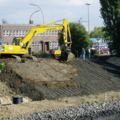
01 November 2021
Meltwater from the Austrian Alps

An imposing, compelling and urgent social problem, that is what Master student Sarah Hanus wanted for her final project. She found it high up in the Austrian Alps where climate change is altering river runoff patterns. Using a model she developed herself, Hanus is able to come up with long-term projections of what these patterns will look like in future. Her work earned her the title of Best Graduate of the Faculty of Civil Engineering & Sciences.
28 October 2021
TU Delft on the 50e place in THE Reputation Ranking

TU Delft takes 50th position on the 2021 Times Higher Education World Reputation Ranking published today. As far as European universities are concerned, TU Delft has ended in 13th position, and within the Netherlands TU Delft is number one.
28 October 2021
TU Delft participates in National Climate Week
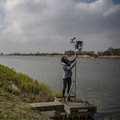
From 28 October to 5 November, it is National Climate Week with the slogan 'everyone does something'. TU Delft, as a climate university, is fully participating, because attention to the climate is more urgent than ever.
26 October 2021
Brunel Solar Team on third place after intensive first day in Marocco
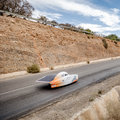
22 October 2021
Mechanism underlying the emergence of virus variants unravelled
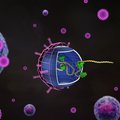
An international consortium, led by Delft University of Technology and the University of North Carolina, has for the first time succeeded in probing the molecular origins of recombination in RNA viruses. Hiccups during the copying process of viruses cause recombination to take place: the exchange of segments of viral RNA.
15 October 2021
TU Delft on board the world largest crane vessel for exploring future Offshore Wind Turbines
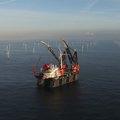
How do you install a wind turbine far out at sea when high waves and strong winds make its installation virtually impossible? With this question in mind, a team of researchers from TU Delft, in collaboration with Heerema Marine Contractors (HMC) and DOT B.V., boarded the world's largest crane vessel this week: Heerema's Sleipnir. As part of a major pioneering project, the FOX project, they are exploring floating wind turbine installation.
08 October 2021
TU Delft, Deltares and ProRail to tackle rail subsidence in a structural way
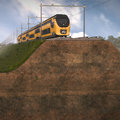
ProRail, TU Delft and Deltares will conduct an investigation over the next five years into the behaviour of trains travelling along our railway embankments. On 4 October 2021, they signed the RESET research programme agreement for this purpose. This research will focus on the consequences of increased and heavier rail traffic along with climate change on our railway embankments and how we can anticipate them. As there is little fundamental systematic knowledge in this field in Europe, this pioneering research may also assist other countries facing similar problems.
07 October 2021
New method helps identifying murder suspects more quickly

Delft PhD student Daan Sutmuller has developed a new, effective method in collaboration with the police that supports homicide investigation teams in collecting and prioritising interesting persons in the investigation more quickly. The promising method should make the investigation work more manageable and ensure that more homicide cases are solved. Sutmuller obtains his doctorate this Thursday with his dissertation 'Murder investigation in the digital age'.
01 October 2021
Diversity & Inclusion Week 4-8 oktober 2021

